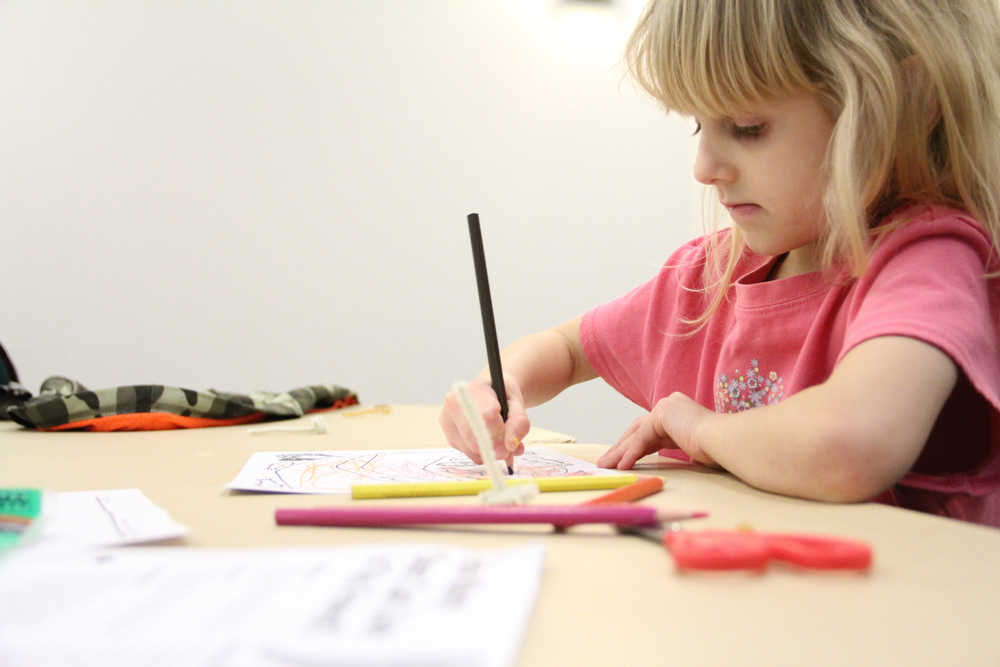Three students colored paper wings and bird bodies, cut out the pieces and glued them together creating camouflage, multi-color and brown paper Arctic Terns, which they then took in search of paper fish — the bird’s food.
Ahnalyse Kircheassner, 8, Darius Garganl, 6, and Amara Ransom, 5, the youngest students at the STEAM Ahead program at the Challenger Learning Center of Alaska in Kenai, studied migration and learned about the Arctic Terns migration pattern, which follows the sun, at their two-hour class on Jan. 28.
At their class last week, Amara said they learned “who eats whom,” which was the theme of the kindergarten through second grade three-week session. Darius said they dissected an owl pellet on the computer and found mouse bones. For homework last week, Darius researched the Great Gray Owl and learned that it is the largest owl in Alaska.
In the kitchen, Asher Buergy, 13, was making butter as a part of the session themed “What do cells, webs and energy have in common?”
He said he goes to the sessions often and enjoys every class.
“I get to get messy and have fun and make stuff,” he said.
James Klep, Challenger Center instructor, said he usually has about three students.
The 5-year-old program, started by a grant, focuses on science, technology, engineering, aviation and math and is made up of five three-week sessions.
Summer Lazenby, director of educational operations, said the classes in each session are related and build on themselves. If a student completes every session, it’s the equivalent of a full semester of science and meets state standards.
She said the program — utilized by home-schooled students — is designed so students can attend the sessions from kindergarten through eighth grade and never repeat something they’ve already learned. As is evident with Asher’s butter making and the younger class’s search for food, the classes require active participation.
“Everything is hands-on,” Lazenby said. “It makes it more relevant to see why and how it works instead of being told.”
Spring Larrow, marketing and special events director, said while the topics are similar to what public school students study, the usually small student groups allow the teachers to customize the classes for the students’ knowledge bases.
The next round of sessions begins on Feb. 11. Kindergarten through second grade will study “Using forces,” third through fifth grade’s theme will be “Rocks, water and ice that shape our world,” and sixth through eighth grade will focus on “Rocks: Do you take them all for granite?”
Kaylee Osowski can be reached at kaylee.osowski@peninsulaclarion.com.

